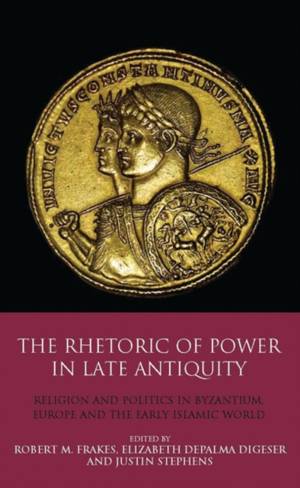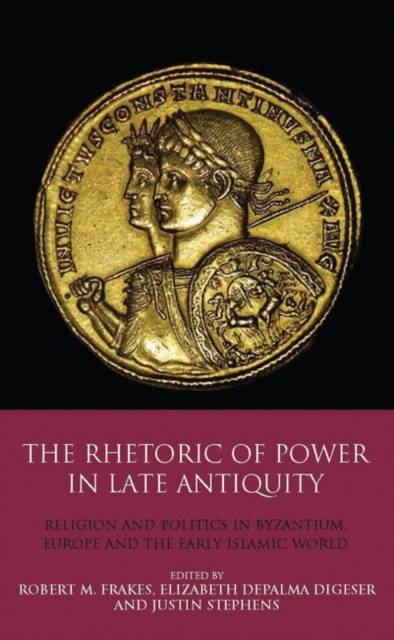
- Afhalen na 1 uur in een winkel met voorraad
- Gratis thuislevering in België vanaf € 30
- Ruim aanbod met 7 miljoen producten
- Afhalen na 1 uur in een winkel met voorraad
- Gratis thuislevering in België vanaf € 30
- Ruim aanbod met 7 miljoen producten
Zoeken
The Rhetoric of Power in Late Antiquity
Religion and Politics in Byzantium, Europe and the Early Islamic World
Elizabeth Depalma Digeser, Robert M Frakes, Justin Stephens
Paperback | Engels
€ 76,45
+ 152 punten
Uitvoering
Omschrijving
Late Antiquity, the period of transition from the crisis of Roman Empire in the third century to the Middle Ages, has traditionally been considered only in terms of the 'decline' from classical standards. Recent classical scholarship strives to consider this period on its own terms. Taking the reign of Constantine the Great as its starting point, this book examines the unique intersection of rhetoric, religion and politics in Late Antiquity. Expert scholars come together to examine ancient rhetorical texts to explore the ways in which late antique authors drew upon classical traditions, presenting Roman and post-Roman religious and political institutions in order to establish a desired image of a 'new era'. This book provides new insights into how the post-Roman Germanic West, Byzantine East and Muslim South appropriated and transformed the political, intellectual and cultural legacy inherited from the late Roman Empire and its borderlands.
Specificaties
Betrokkenen
- Auteur(s):
- Uitgeverij:
Inhoud
- Aantal bladzijden:
- 320
- Taal:
- Engels
Eigenschappen
- Productcode (EAN):
- 9781350157941
- Verschijningsdatum:
- 30/04/2020
- Uitvoering:
- Paperback
- Formaat:
- Trade paperback (VS)
- Afmetingen:
- 140 mm x 216 mm
- Gewicht:
- 349 g

Alleen bij Standaard Boekhandel
+ 152 punten op je klantenkaart van Standaard Boekhandel
Beoordelingen
We publiceren alleen reviews die voldoen aan de voorwaarden voor reviews. Bekijk onze voorwaarden voor reviews.











